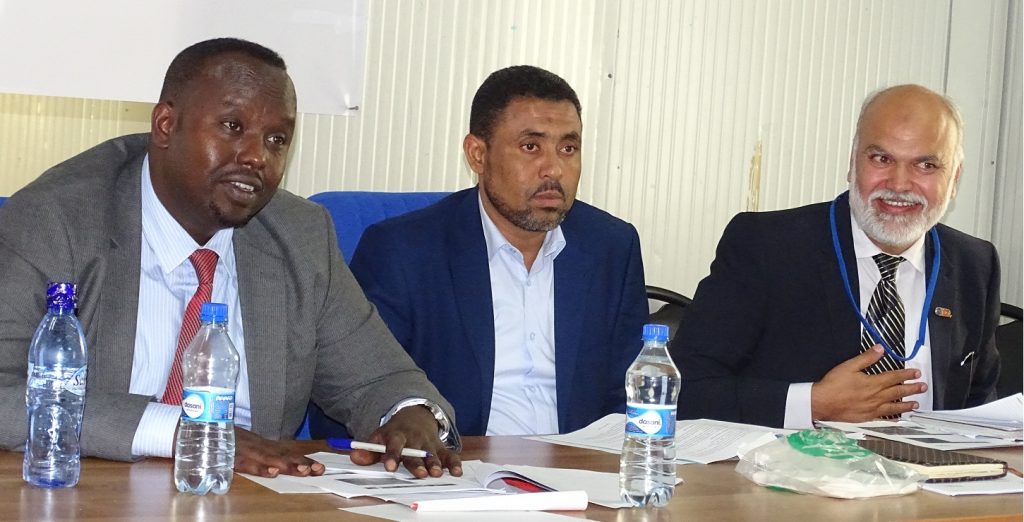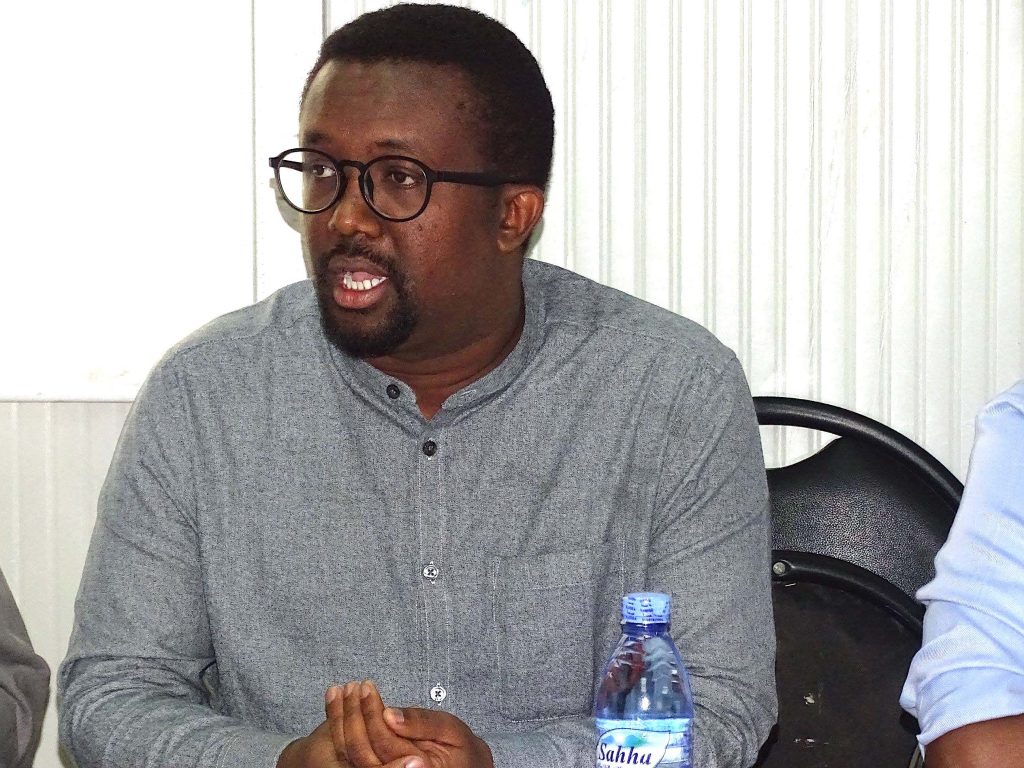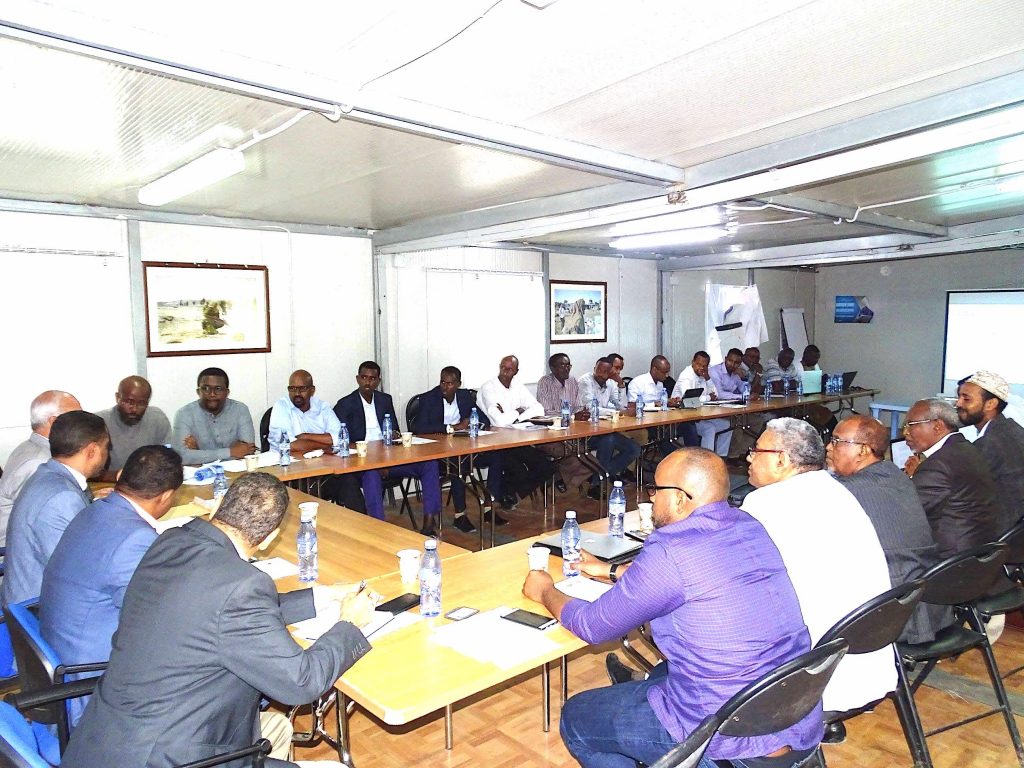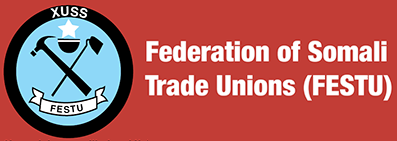The International Labour Organisation (ILO) sponsored a tripartite workshop to finalise Somalia’s labour code through a tripartite review held on 20-21 February 2019. In attendance were representatives from ILO tripartite constituents in the country – namely the Federal Ministry of Labour & Social Affairs (MoLSA), the Federation of Somali Trade Unions (FESTU) and the Somali Chamber of Commerce and Industry (SCCI) – as well as representatives from the Federal Member States and other ministries in the federal government.

At the two-day workshop, the ILO specialists from Labour Law and Reform Unit and ILO Country Office in Mogadishu conducted the workshop with specific objectives of improving knowledge of Government, Employers and Workers on basic concepts of Labour Legislation and guidance for effective labour legislation and to also discuss and reach a consensus on the draft labour code.
The workshop was opened by the Deputy Minister of Labour and Social Affairs, Honourable Swaqar Ibrahim Abdalla, who took an active part in workshop sessions. “ILO is providing technical support in revising the Labour Code in line with international standards and national commitments and in consultations with social partners. It is important today in this context of our country to have a new draft of the Labour code that is adapted to the economic and social challenges of Somali workers and employers,” said the Deputy Minister.
Deputy Minister Abdalla added “I would like to stress the importance of social dialogue and tripartism. We are fully aware the challenge we have in promoting tripartism which is a fundamental ILO principle. I want to call for ILO tripartite constituents in Somalia to take message of social peace. Experience shows that labour legislation can only fulfil its functions effectively if it is responsive to the conditions on the labour market and the needs of the parties involved. The most efficient way of ensuring that these conditions and needs are taken fully into account is if those concerned are closely involved in the formulation of the legislation through processes of social dialogue.”
Speaking on behalf of the ILO at the opening session, Mr Saad Gilani, Head of ILO Somalia Office, thanked the Government for its leadership role in revising the Labour Code through a Somali-led and Somali-owned process. He also welcomed the Government’s openness to get ample feedback from social partners through various consultations towards the development of Labour Code and improving it in line with various feedbacks and assured of ILO’s support in developing capacity of the Ministry of Labour & Social Affairs, Labour Ministries in Federal Member States and social partners (Employers and Workers) – for effective implementation of Labour Code.

Speaking on behalf of the trade unions at the opening session, General Secretary of FESTU Omar Faruk Osman said “we can say with certainty that the tripartite partners have agreed to embark on a comprehensive reform process of the 1972 Labour Code in order to bring the country’s labour legislation in line with international labour standards and best practices. We are also deeply aware of the sentiments of the Somali working population who are desirous to get a new and modern Labour Code and have waited for many years for the Labour law to be reviewed. Therefore, we want to see a quick logical conclusion of this process.”
“The nation and trade unions in particular, had embraced the principle of tripartism, since the start of this labour law reform process and positive outcomes had been realized from social dialogue. However, I must express organized labour’s concern on the lack of tripartism before decisions are made. A unilateral approach seems to be the norm in areas of importance. This tendency of unilateralism needs to end so that social dialogue becomes the norm and social peace prevails. We wish to remind this meeting that any policy or legislation that lacks social partners’ participation and buy-in starts on a very wrong foot with a shaky and weak foundation because tripartite consultation is important in securing sustainable, durable and fully tested legislation that is going to stand the test of time,” added FESTU General Secretary.
Speaking on behalf of employers at the opening session, professor Isse M Halane, Technical Advisor of SCCI said “I would like to take a moment to remind us all of the duties, responsibilities, and roles that we all have both singularly and share commonly together; and I do hope that together we can finalize the labour code. We as social partners of SCCI and FESTU seek not only to be consulted upon but to be formal elements in the decision making and also in the implementations of the labour programs and policies together with the government as an equal in the name of the tripartite.”
On the occasion of closing the tripartite workshop, the Federal Minister for Labour & Social Affairs (MoLSA), Mr Salah Jama, thanked ILO for extending the technical support for revising the Labour Code and also thanked all participants of the workshop for their ample feedback. He emphasized that the Labour Code should be aligned to the principles of social justice and tripartite dialogue. He also emphasized on enhancing the capacity of MoLSA and Federal Member States to effectively implement Labour Code in true spirit.

Both FESTU and SCCI representatives at the workshop jointly welcomed the federal government commitment to reform the old and outdated labour code through tripartite approach, and emphasized the importance of commitment, mutual confidence and trust among the tripartite partners to ensure the success of the labour law reform process by learning from the previous shortcomings and building on the positive experiences.
